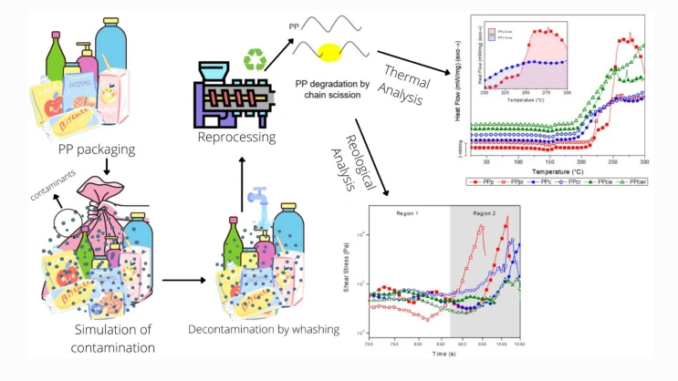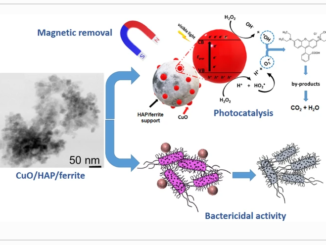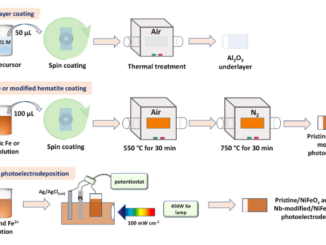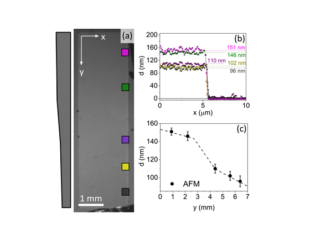
Thermal Stability and Crystallization Behavior of Contaminated Recycled Polypropylene for Food Contact
Abstract: Polypropylene is one of the most widely used polymers, especially in the food packaging industry, which causes negative environmental effects. Recycling is a good option to partially solve this environmental problem. Thus, the polymer was contaminated with a cocktail to simulate the conditions of disposal and recycling following FDA guidelines. The influence of contaminants on recycled PP was analyzed by quiescent and nonquiescent crystallization. It was found that the contaminants alter the crystallization flow since longer induction times were observed for all contaminated samples. Also, the thermal behavior was performed considering that the thermogravimetric (TGA) results indicated an increase in the stability with the presence of contaminants. Therefore, a deep investigation using the induced oxidation time and induced oxidation temperature was performed. The contaminants play an important role in the crystallization process, as well as, in the degradation of the samples. Furthermore, the use of TGA and DSC as complementary techniques is fundamental to analyze this influence.
Author(s): Veroneze, I. B.; Onoue, L. A.; Cruz, S. A.
Journal of Polymers and the Environment
Published: 21 April 2022
DOI: https://doi.org/10.1007/s10924-022-02447-9
CDMF
The CDMF, hosted at the Federal University of São Carlos (UFSCar), is one of the Research, Innovation and Dissemination Centers (RIDC) supported by the São Paulo State Research Support Foundation (Fapesp), and also receives investment from the National Council Scientific and Technological Development (CNPq), from the National Institute of Science and Technology of Materials in Nanotechnology (INCTMN).




